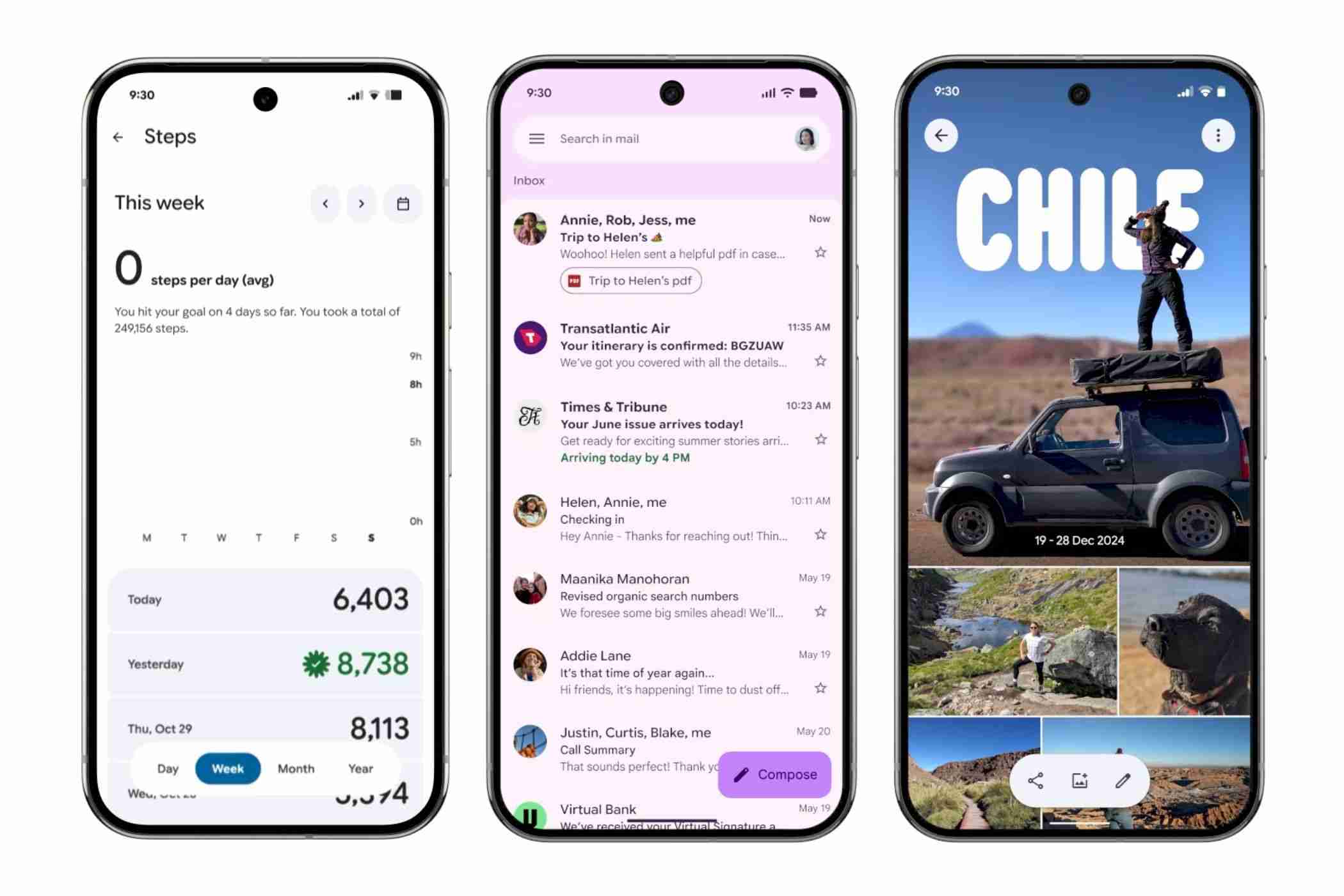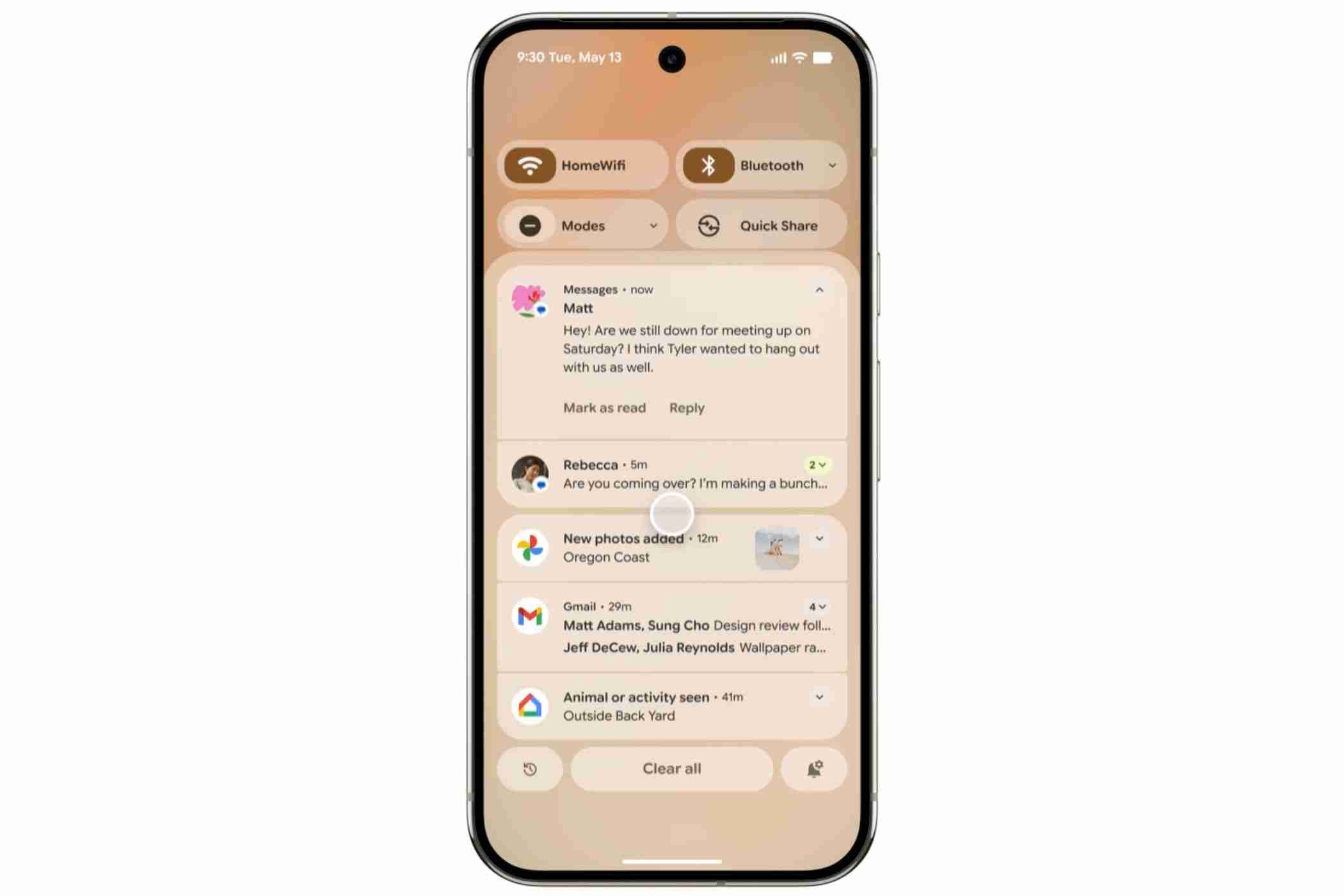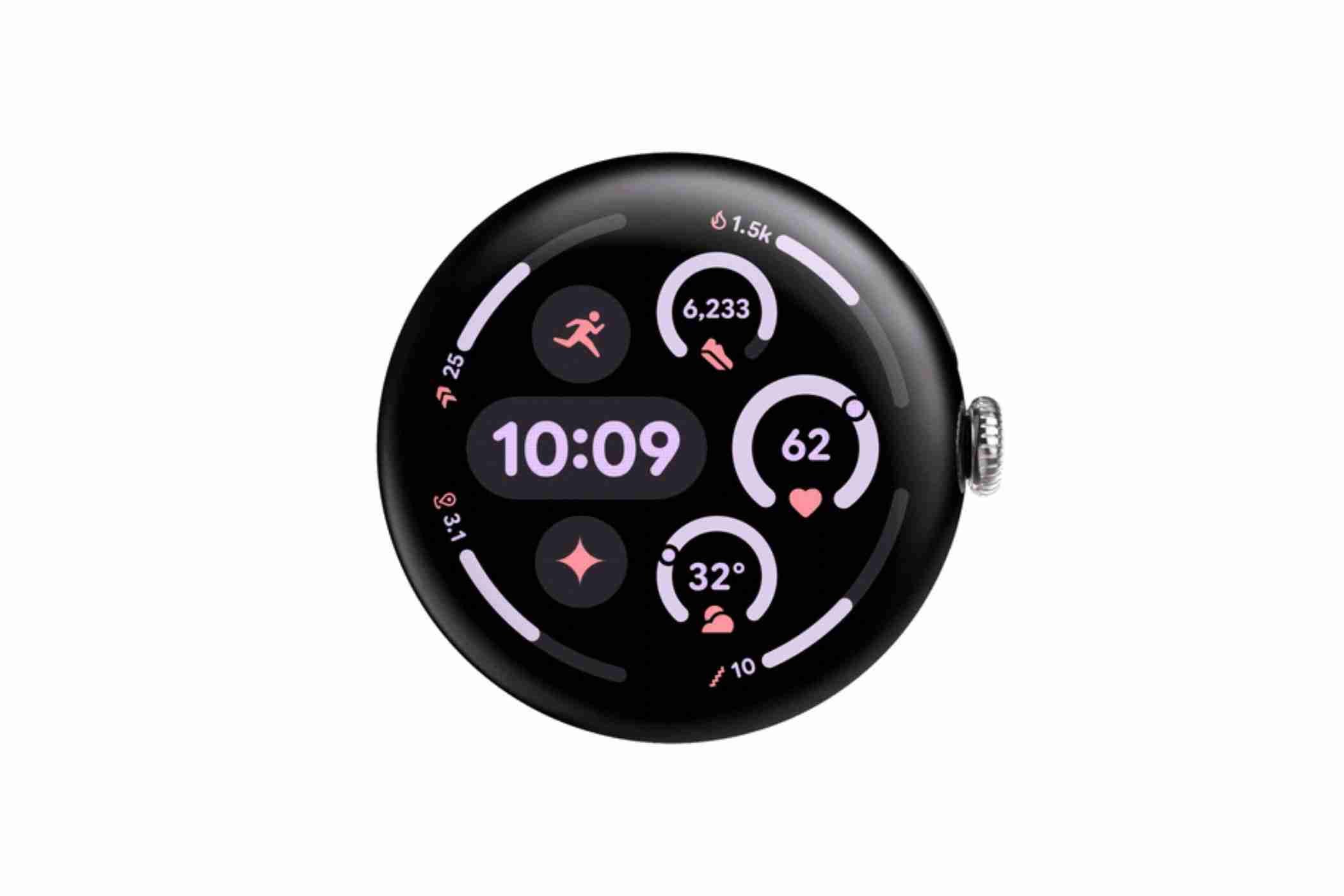 Mobile Tutorial
Mobile Tutorial
 Android Phone
Android Phone
 Material 3 Expressive Finally Made Me Excited About Android Updates Again
Material 3 Expressive Finally Made Me Excited About Android Updates Again
Material 3 Expressive Finally Made Me Excited About Android Updates Again
May 22, 2025 am 05:47 AMI’m going to be honest—I haven’t felt genuinely excited about an Android update in years. The last time I actually got that feeling of anticipation was the Material You redesign in 2021. But after that? It’s been a series of incremental improvements that, while nice, didn’t really move the needle. That changed when Google pulled back the curtain on Material 3 Expressive.
Material You's idea of personalized themes and dynamic color changes was fresh, and it brought a layer of visual cohesion that Android desperately needed. When I saw Material 3 Expressive, I felt that old spark come back. It’s not just another design refresh—it’s a bold, playful, and genuinely interactive design that seems to breathe life back into Android. And honestly? I haven’t felt this kind of excitement since Material You.
Why Android Needed a Bold New Direction
The past few years of Android design have been solid, but safe. Material You introduced dynamic theming and a sense of personalization, but Google played it conservative after that. Android 13, 14, and 15 felt more like patches than actual overhauls. They ironed out the kinks, smoothed the rough edges, but nothing really changed visually.
Material 3 Expressive changes that. Google’s official press release described it as one of their biggest updates in years, and for good reason. The design is alive. It’s fluid. When you dismiss a notification, it doesn’t just disappear—it triggers a cascading effect that subtly nudges the ones next to it, almost like a ripple in water. Swipe away an app from the recent apps screen, and you get this springy, bouncy animation paired with a satisfying haptic rumble. It’s playful, but more importantly, it’s expressive (hence the name).

For the first time in years, it feels like Android wants you to feel what you’re doing, not just see it. That’s something I didn’t realize I missed until I saw it in action.
The Little Things That Make a Big Difference
What really got me, though, are the small details. Material 3 Expressive isn’t just about big, bold shapes and fancy animations—it’s about the little things that make everyday use feel more tactile and responsive.
Take the volume slider, for example. In Material You, it was a basic slide up or down. It got the job done, but it felt flat. In Material 3 Expressive, the slider moves with this elastic springiness that just feels good. And when you pull down the notification shade? There’s a subtle blur effect in the background that gives the whole thing a sense of depth. It’s not just a flat window anymore—it feels layered, like you’re looking through frosted glass at your app drawer.

These are small touches, I know. But they add up. They make your phone feel more polished, more premium. It’s the kind of stuff that iOS has done well for years, and I’m thrilled to see Google finally paying attention to it.
It’s Not Just About Phones—Wear OS Finally Feels Cohesive
Another reason I’m excited is that Google didn’t just stop at phones. Wear OS is also getting the same level of design love. During The Android Show, Google showed off how Material 3 Expressive works on Wear OS 6, and it looks incredible.

Scrolling through lists now has a sense of depth, with elements softly sliding away instead of abruptly cutting off. There’s even color theming that matches your watch face to the overall system theme, creating this seamless aesthetic that just wasn’t there before.
And it’s not just eye candy—Google claims a 10% boost in battery life with this update. That’s huge for Wear OS.
But… Is It Just a Pixel Thing?
Here’s the one thing that tempers my excitement a bit. As great as Material 3 Expressive looks, we have to be real—most Android users won’t see it. Samsung has One UI, Nothing has NothingOS, OnePlus has OxygenOS, and so on, with their signature UI and UX. These skins overwrite whatever Google cooks up, and it’s been that way for years.
That sucks, because this is genuinely the most interesting Android has looked in years, and the fact that it might only be fully realized on Pixel devices is a bit of a letdown.
On a side note, the first stable release of Android 16 won’t even include this new design overhaul. Google has confirmed that Material 3 Expressive is coming later this year, which makes it pretty obvious they want to showcase it with the upcoming Pixel 10 series.
For the first time since Material You, I’m actually counting down the days to an Android update. And with my Pixel 8, I’m right at the front of the line to experience it. I haven’t felt this kind of anticipation in years, and it’s damn good to have it back.
The above is the detailed content of Material 3 Expressive Finally Made Me Excited About Android Updates Again. For more information, please follow other related articles on the PHP Chinese website!

Hot AI Tools

Undress AI Tool
Undress images for free

Undresser.AI Undress
AI-powered app for creating realistic nude photos

AI Clothes Remover
Online AI tool for removing clothes from photos.

Clothoff.io
AI clothes remover

Video Face Swap
Swap faces in any video effortlessly with our completely free AI face swap tool!

Hot Article

Hot Tools

Notepad++7.3.1
Easy-to-use and free code editor

SublimeText3 Chinese version
Chinese version, very easy to use

Zend Studio 13.0.1
Powerful PHP integrated development environment

Dreamweaver CS6
Visual web development tools

SublimeText3 Mac version
God-level code editing software (SublimeText3)
 Here's When Your OnePlus Will Get Android 16 (OxygenOS 16)
Jul 15, 2025 am 01:30 AM
Here's When Your OnePlus Will Get Android 16 (OxygenOS 16)
Jul 15, 2025 am 01:30 AM
Google released the first Android 16 beta in January 2025, packed with changes and countless new features. A similar update is coming soon for your OnePlus phone in the form of OxygenOS 16. With OnePlus busy releasing Android 16 betas, here's what yo
 AT&T Has a New Plan to Prevent SIM Swapping and Fraud
Jul 07, 2025 pm 12:23 PM
AT&T Has a New Plan to Prevent SIM Swapping and Fraud
Jul 07, 2025 pm 12:23 PM
Summary AT&T's new Account Lock feature protects against unauthorized account changes or SIM swapping attacks.
 Top Tech Deals: AirPods Max, Fire TV Cube, Pixel 8 Pro, and More
Jul 07, 2025 pm 12:26 PM
Top Tech Deals: AirPods Max, Fire TV Cube, Pixel 8 Pro, and More
Jul 07, 2025 pm 12:26 PM
Summer is officially here, bringing with it warmer weather, outdoor adventures, and plenty of deals and discounts. With the upcoming holiday weekend, we've found some amazing offers you'll love—like Samsung's 85-inch TV at a $1,300 discount, $400 off
 How to Play Any Nintendo DS Game on Your Samsung Galaxy S3
Jul 07, 2025 am 09:11 AM
How to Play Any Nintendo DS Game on Your Samsung Galaxy S3
Jul 07, 2025 am 09:11 AM
If you actually had to look up what "DS" stands for in Nintendo DS, that probably means you weren't a huge fan of the portable game system. To be honest, I never was. It's fairly bulky and has two tiny displays.Despite my dislike for the DS
 How to Get Faster PIN-Unlock on Your Samsung Galaxy S4 by Removing the 'OK' Step
Jul 06, 2025 am 09:11 AM
How to Get Faster PIN-Unlock on Your Samsung Galaxy S4 by Removing the 'OK' Step
Jul 06, 2025 am 09:11 AM
If you've had the chance to use both an iOS and Android device, you might have noticed a small difference in their PIN unlock screens. On Android, you need to press "OK" after entering your PIN, while on iOS, the screen unlocks automaticall
 Nothing Phone (3) Is Here, Replaces LED Lights With 'Glyph Matrix' Panel
Jul 08, 2025 am 01:43 AM
Nothing Phone (3) Is Here, Replaces LED Lights With 'Glyph Matrix' Panel
Jul 08, 2025 am 01:43 AM
Nothing has released its latest Android smartphone, the Nothing Phone (3). It's a compelling combination of hardware and software, although fans of earlier models might miss the LED accent lights.As with the previous Nothing Phone (2), the standout f
 This New Linux App Makes Android File Sharing a Breeze
Jul 07, 2025 pm 12:02 PM
This New Linux App Makes Android File Sharing a Breeze
Jul 07, 2025 pm 12:02 PM
Sharing files between Linux and Android has often been a complicated process involving unreliable Linux utilities or complex network setups. A new application, Packet, aims to solve this by providing a simple, wireless file transfer solution. Let's f
 Niagara Launcher Is Getting Much Easier to Customize
Jul 13, 2025 am 01:43 AM
Niagara Launcher Is Getting Much Easier to Customize
Jul 13, 2025 am 01:43 AM
SummaryNiagara Launcher introduces themes for personalization, changing wallpaper, icons, colors, fonts, and widgets.Pro subscribers gain access to 12 themes, while free users can sample a few themes as well.The update also includes new Anycon icon p





